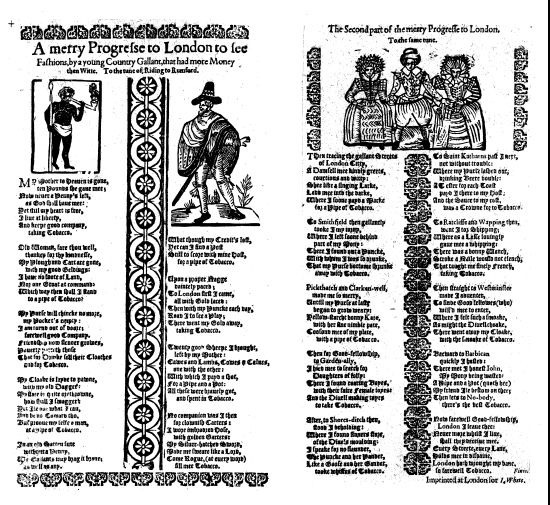Evolving Parts
A Typical Two-Part Ballad Reconstructed as “Ballad Facsimile,†Pepys 1.198-199 (EBBA 20088)
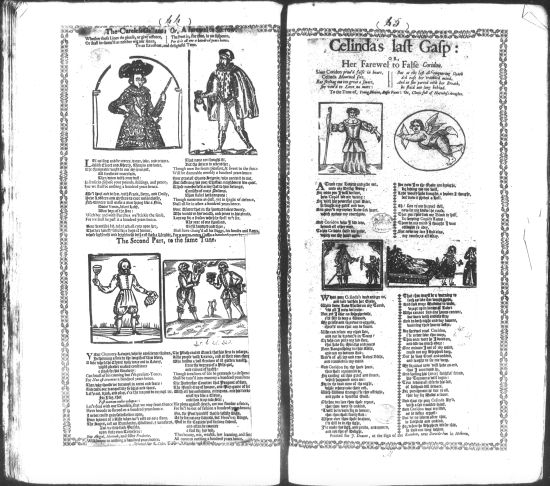
Typical Two-Part Ballad Viewed as “Album Facsimile†Roxburghe 2.44 (EBBA 30270) (1679?), on the left, facing Roxburghe 2.45 (EBBA 30272) (1680?), on the right

Roxburghe 3.304-305 (EBBA 30837), “The Bristol Garland. In Four Parts†(1760?), Album Facsimile

Roxburghe 3.382-383 ( EBBA 31086), ‘The Gloucestershire Tragedy. Or, The Unnatural Mother†(in Five Parts), 1760?, Album Facsimile
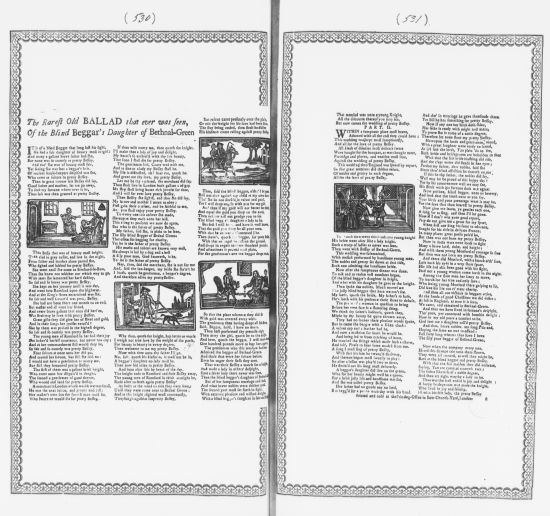
Roxburghe 3.530-531 (EBBA 31233), “The Rarest Old Ballad that ever was seen, Of the Blind Beggar’s Daughter of Bethnal-Green†(1750?), Album Facsimile


Pages 8 and 22 from Chapbook, "The History of the Blind Begger at Bednal-Green," 23 pages in 10 chapters, with 27 illustrations (1715?)
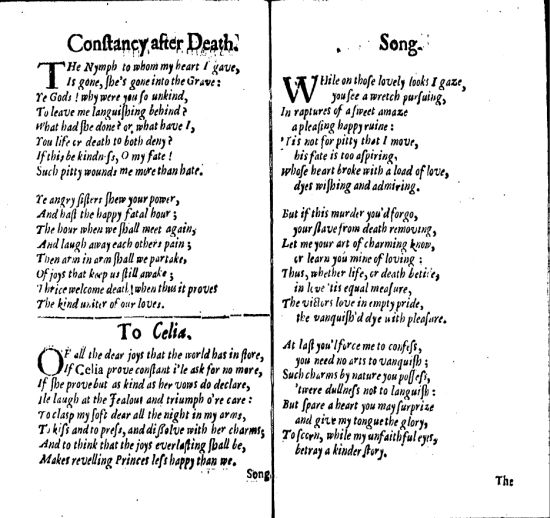
From A New Collection of Choicest Songs Now in Esteem in Town or Court (1676)

Roxburghe 3.604 (EBBA 31301), “Three Excellent New Songs†(1701?), Album Facsimile
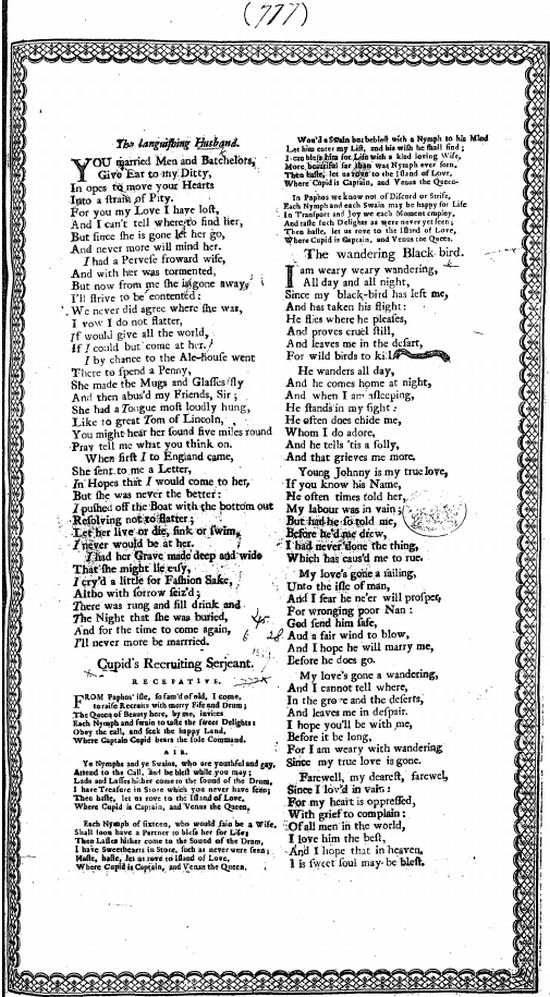
Roxburghe 3.777, “The Languishing Husband†(EBBA 31491), “Cupid’s Recruiting Serjeant†(EBBA 32607), and The Wandering Black-Bird†(EBBA 32608) (1720?), Album Facsimile


Two Slip Songs: Roxburghe 3.352 (EBBA 31066), “The Colliers Rant,†(1740?) and 3.369 (EBBA 31079), “The Coaly Tyne,†(1780?), Album Facsimiles
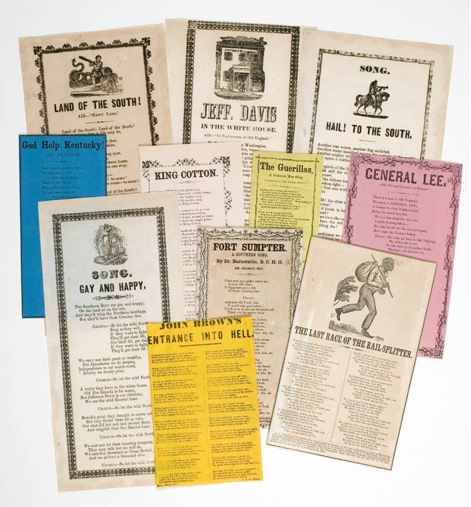
Confederate Slip Ballads, 1861-1865
